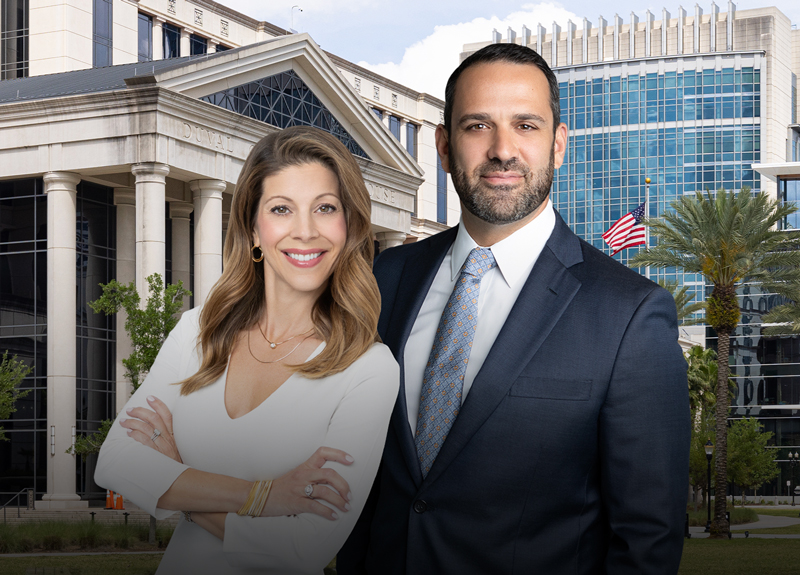
A deposition is a pretrial procedure that takes place after you file a personal injury lawsuit but before trial. In a deposition, an attorney cross-examines witnesses who plan to testify for the opposing side as well as other parties with relevant information. You might have to testify at a deposition even if you will not be a witness at trial.
What is Pretrial Discovery?

Pretrial discovery is a court-supervised procedure whereby each party seeks evidence that is in the possession of the other side. It takes place only after the filing of a lawsuit. If either side refuses to cooperate, the other party can ask the court to impose sanctions.
Depositions are one legal weapon that pretrial discovery offers. Others include written interrogatories, demands for documentation, demands for inspection of physical evidence, and requests for admissions.
How Do Depositions Work in a Florida Personal Injury Case?
A deposition is similar to the cross-examination of witnesses at trial. It typically takes place in a law office conference room in the presence of witnesses, parties, both side’s lawyers, and a court reporter. Each side’s lawyer interviews witnesses under oath, and the court reporter records the questions and answers.
There are two important differences between a deposition and trial testimony:
- The judge will not attend. Because of this, although your lawyer can advise you not to answer a particular question, there is nobody in attendance to rule on objections. It’s still a good idea to object in order to preserve issues for trial. The judge can rule on the admissibility of deposition evidence at trial.
- The scope of questioning is broader than it is at trial. You can ask questions that you cannot ask at trial as long as they are expected to lead to admissible evidence.
You can seize upon any inconsistency between a witness’s deposition testimony and their trial testimony.
Testifying Experts vs. Consulting Experts
Many types of personal injury claims, especially those involving medical malpractice and product liability, rely heavily on expert witness testimony.
Lawyers use two different types of experts: testifying experts (who will testify at trial) and consulting experts (who simply advise the lawyer and help them understand the subject matter).
Although you have the right to depose the other side’s testifying experts, you generally have no right to even know of the existence of a consulting expert. The same rules apply to the other side.
How to Prepare for a Deposition
Below are some general guidelines for how to prepare for a deposition:
- Ask your lawyer to produce a list of questions that you might have to answer. Then, thoroughly research any material covering these questions.
- Review all relevant documents in detail.
- Understand the case in great detail. You should be able to answer any relevant question without notes to jog your memory.
- Conduct mock depositions in which your lawyer grills you. The more merciless your lawyer, the better your performance will be at your deposition.
The more prepared you are, the better and more confident you will feel going into the deposition.
How to Conduct Yourself At a Deposition
Observe the following advice:
- Listen to each question carefully and think before you speak.
- Answer the exact question the lawyer asks you and nothing else. In other words, don’t give away free information.
- Refuse to answer any question your lawyer advises you not to answer.
- Stay cool. The quickest way to bungle a deposition is to get angry or let the opposing party’s lawyer intimidate you.
- Demand clarification of vague or compound questions (two or more questions in one). Refuse to answer any question until you understand it thoroughly.
- Don’t answer with a nod of your head or another gesture. The court reporter can only record verbal answers.
Above all, forgive yourself if you make a few errors. Errors are inevitable, but aim for perfection nonetheless.
How Parties Use Depositions in Court
Either side can use deposition transcripts for the following purposes:
- To help them search for admissible evidence prior to trial
- To discredit a witness whose trial testimony differs from their deposition testimony
- To substitute for witness testimony if the witness cannot attend the trial for some reason; in some cases, for example, the victim of a personal injury will die before trial, turning a personal injury claim into a wrongful death claim.
The primary purpose of a deposition is to understand the other side’s case before trial.
Your Jacksonville Personal Injury Attorney Can Help You Prepare For Your Deposition
As you may have guessed by now, there are many different mistakes you can make at a deposition. Not only do you need to prepare thoroughly, but you also need a Jacksonville personal injury lawyer with you every step of the way. Contact our personal injury law office at Baggett Law Personal Injury Lawyers.
This advice doesn’t change even if you still hope to settle your claim out of court. Under the contingency fee system that most personal injury lawyers use, you pay no legal fees unless you win the case. Call us today at (904) 396-1100.

